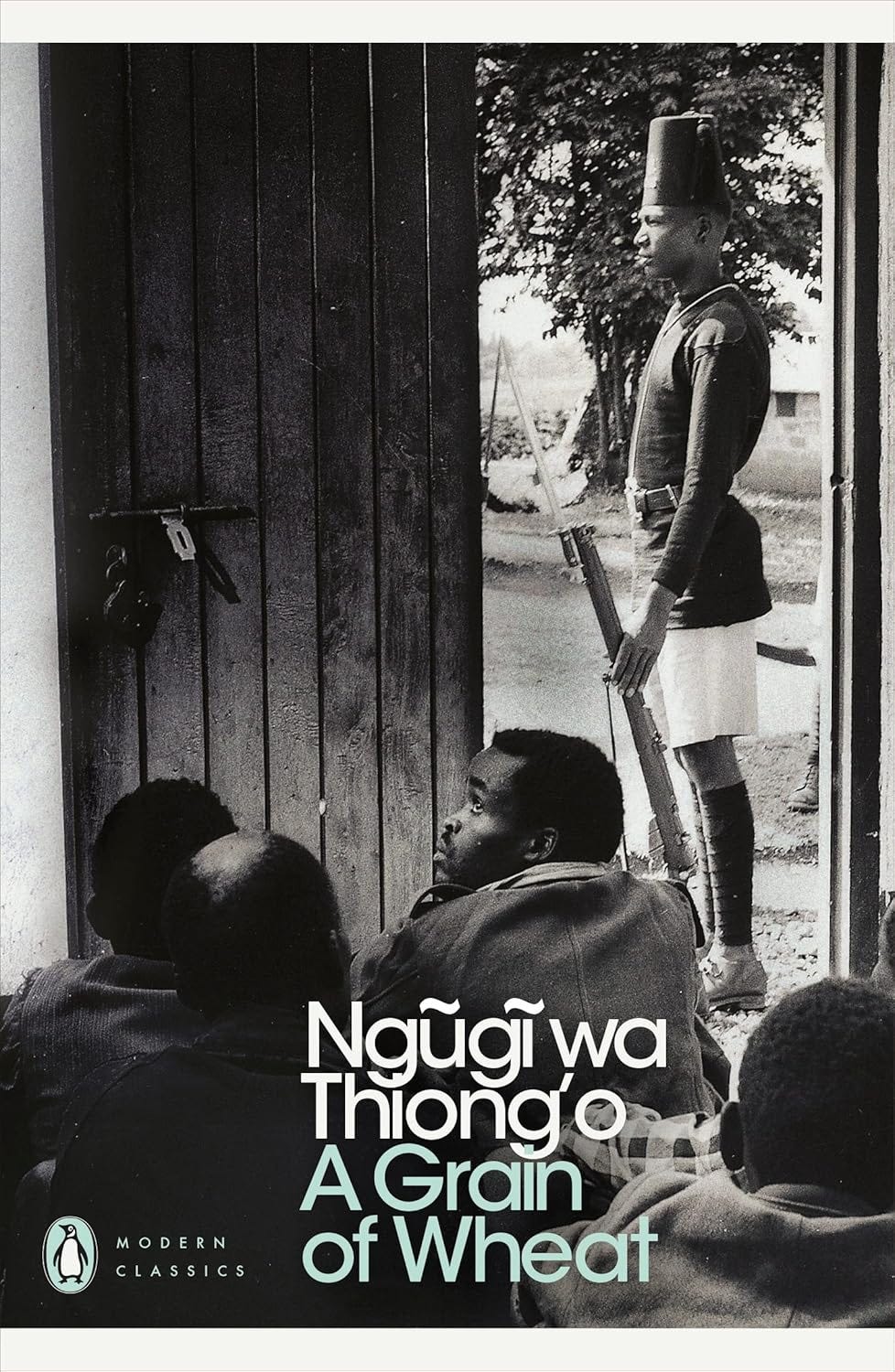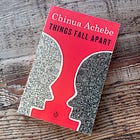Eaten by a Secret: Reckoning after the Cataclysm
Mugo Has a Secret. So Does Mumbi. Hers Is Harder to Hide. Reviewing ‘A Grain of Wheat’ by Ngũgĩ wa Thiong’o
It’s possible to look at history as a series of major events, sweeping turns, upheavals, and cataclysms. But for every action, there are actors. Events, turns, and upheavals happen through and to individuals: the man in the market, the girl at the train station.
“A historical view makes everyone into hostages of great societal events,” says Eugene Vodolazkin in his novel, The Aviator. “I see things differently, though: exactly the opposite. Great events grow in each separate individual.”
Kenyan writer Ngũgĩ wa Thiong’o agrees and brings both views together, the macro and the micro, in his historical novel of the struggle for Kenyan independence, A Grain of Wheat.
Small Lives
You could look at the colonization of Kenya through lens of expropriated land, encroaching settlers, and displaced tribal government. Similarly, you could explore the native resistance through the Mau Mau uprising, guerrilla war, and violent reprisals. With all of this as backdrop and stage, Ngũgĩ gives us a compelling cast of ordinary characters who take part in the action.
The story begins in the days and years before independence. Most of the action is past, but it all presses in on the present in the form of secrets, betrayals, fears, and disappointments that must be exorcised like demons before our cast can move forward.
Start with Mugo. Community leaders come to the lonely, isolated villager to ask him to speak at the Independence (Uhuru) Day celebration. The people see the hermit Mugo as a hero for his defiant refusal to submit to the British while imprisoned during the uprising. He even initiated a hunger strike. But Mugo holds as an acidic secret that’s gnawing him alive.
Mumbi has a secret as well, though hers toddles visibly behind her. When her husband Gikonyo discovers the child—conceived and born while he was likewise imprisoned—the apparent betrayal plunges their marriage into crisis. All the more because the father of the child is Gikonyo’s long-time rival, Karanja, who collaborated with the British during the uprising.
Still unsolved? The betrayal of Mumbi’s brother and Mau Mau leader, Kihika. Who handed him to the British? General R., indeed the entire community, suspects Karanja, and General R. plans to dispense justice on the night of the independence celebration.
Great Events
The narrative frame stretches over just a few days leading up to the Uhuru celebration. Through flashbacks before and during the conflict, Ngũgĩ amplifies the dramatic tension as the village prepares for the event and Karanja’s denunciation and downfall.
Ngũgĩ’s use of flashbacks goes beyond mere narrative device. Flashbacks underscore how our current realities depend upon memory for coherence. But without complete knowledge of the past, of what happened and why, our coherence is false, and our beliefs about the present are founded on faulty assumptions.
What does that mean for political movements? What does that mean for individuals? What does that mean for the beliefs they hold, the grudges they nurse?

Ngũgĩ lived through the events he describes. His mother was tortured during the uprising and he lost his half brother in the struggle.
First published in 1967, A Grain of Wheat explores a range of themes extending from Kenya’s fight for independence, including the impact of colonialism and the newly independent nation’s uncertain future. But the richest investigations are not in the large story, but the small stories, the interpersonal conflicts: heroism and cowardice, love and betrayal, guilt and reconciliation.
Ngũgĩ, for instance, renders the long and difficult process of healing between Mumbi and Gikonyo in passages convincingly raw, real, and tender. And Mugo? “Great events grow in each separate individual.”
When we take in the grand scope of history, Ngũgĩ reminds us we cannot overlook the individual who acts—either for good or ill—and thus propels the larger story forward. As he relates these small stories, Ngũgĩ invites us to contemplate mercy and forgiveness in a world with little patience for either, including the one he describes, but which might manifest nonetheless.
A Grain of Wheat is book No. 8 in my classic novel goal for 2024. Here’s what I’ve read so far and what’s in store for the rest of the year.
January: F. Scott Fitzgerald, The Great Gatsby
February: Alice Walker, The Color Purple
March: Thornton Wilder, The Bridge of San Luis Rey
April: Gwendolyn Brooks, Maud Martha
May: Chuang Hua, Crossings
June: Willa Cather, My Àntonia
July: Kurt Vonnegut, Slaughterhouse-Five
August: Ngũgĩ wa Thiong’o, A Grain of Wheat
September: Robert Penn Warren, All the King’s Men
October: Ray Bradbury, Something Wicked This Way Comes
November: George Eliot, Middlemarch
December: Ernest J. Gaines, A Lesson Before Dying
Thanks for reading! If you enjoyed this post, please hit the ❤️ below and share it with your friends.
Not a subscriber? Take a moment and sign up. It’s free for now, and I’ll send you my top-fifteen quotes about books and reading. Thanks again!
Before you go . . .





Thank you for the connection between literary flashbacks and personal memory reflections. You must have known that for a while, but it is a new angle from which I now need to rethink everything I know.
Your recommendations are always compelling. Thank you. I know very little of African writing, and this seems a good place to address that. I'm especially interested in stories that show the micro detail behind a macro picture, as it were: and how one often hides one's shortcomings beneath slogans and movements.